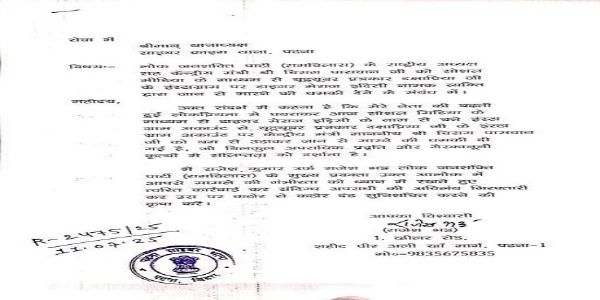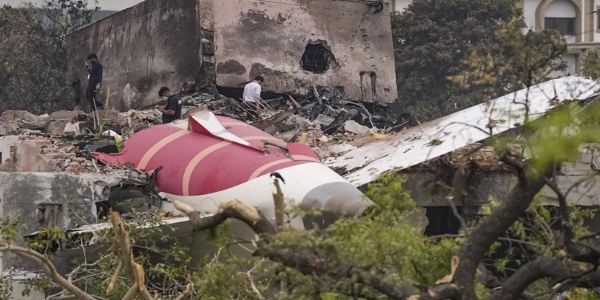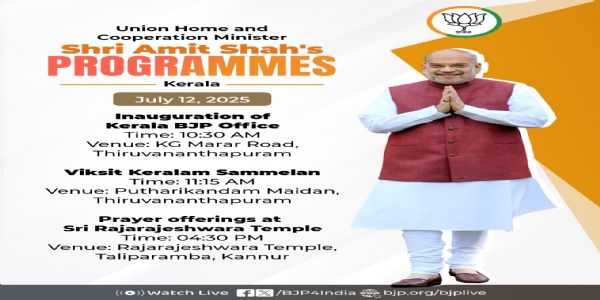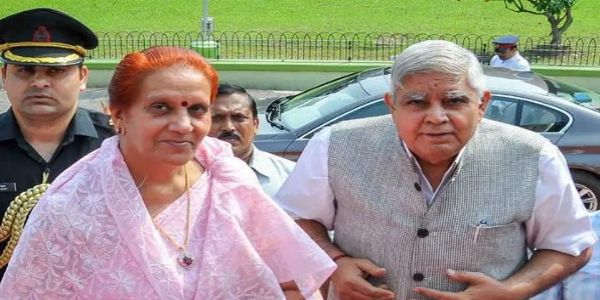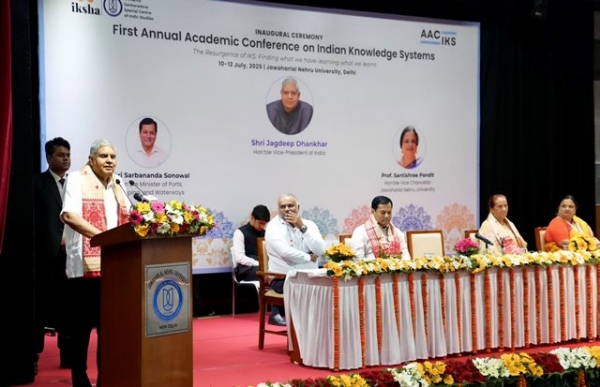
New Delhi, July 10 (H.S.): Vice President Jagdeep Dhankhar, emphasized the importance of India's intellectual and cultural growth at the inaugural Annual Conference on the Indian Knowledge System (IKS) at Jawaharlal Nehru University (JNU), Delhi on Thursday. He asserted that India’s rise as a global power must be anchored in its intellectual heritage and cultural treasures to ensure lasting significance and harmony with traditions. He highlighted the importance of originality in thought and resilience in intellectual traditions as essential components of enduring soft power.
Dhankhar criticized the historical neglect of indigenous wisdom, describing it as an architecture of erasure that continued even post-independence. He underscored that Western frameworks were often paraded as universal truths, leading to a loss of focus on India's core values. Reflecting on the historical disruptions to India's intellectual legacy, he pointed to the Islamic invasions and British colonization as pivotal moments that stunted and distorted the Indian Knowledge System, leading to an educational culture that prioritized rote memorization over critical thinking.
He remarked that, prior to European universities, India was home to renowned centers of learning like Takshashila, Nalanda, and Vikramashila, which attracted seekers from across the globe. These were places of rich intellectual exchange that contributed significantly to world knowledge.
The Vice-President advocated for a broader understanding of knowledge, emphasizing that it exists not only in texts but also in communities and practices. He called for the establishment of a genuine Indian Knowledge Systems research ecosystem that values both written and experiential forms of wisdom. This includes creating digitized repositories of classical Indian texts in various languages such as Sanskrit and Tamil, making them accessible to scholars worldwide.
He urged the development of training programs that equip young scholars with diverse methodological tools, integrating philosophy, computation, and ethnography to deepen their understanding of Indian knowledge traditions. Quoting Max Müller, he suggested that India represents a unique landscape for profound intellectual development.
He stressed that the interaction between tradition and innovation is vital; past wisdom can inspire current innovations, with spiritual insights having relevance even in contemporary scientific discourse. He cited examples such as the connection between Rigveda hymns and astrophysics, as well as the relevance of the Charaka Samhita in modern public health discussions.
The Vice-President concluded by emphasizing the importance of knowledge systems that explore the connections between various aspects of existence to provide thoughtful responses to the challenges of a fractured world. He reiterated the need for actionable steps in strengthening Indian Knowledge Systems that resonate with both ancient wisdom and modern significance. Notable figures present at the event included Sarbananda Sonowal, Minister of Ports, Shipping and Waterways, Govt. of India, Prof. Santishree Dhulipudi Pandit, Vice Chancellor, Jawaharlal Nehru University, Prof. M. S. Chaitra, Director- IKSHA, Akhil Bharatiye Toli Sadasya, Prajna Pravah, and other dignitaries.
Hindusthan Samachar / Jun Sarkar





